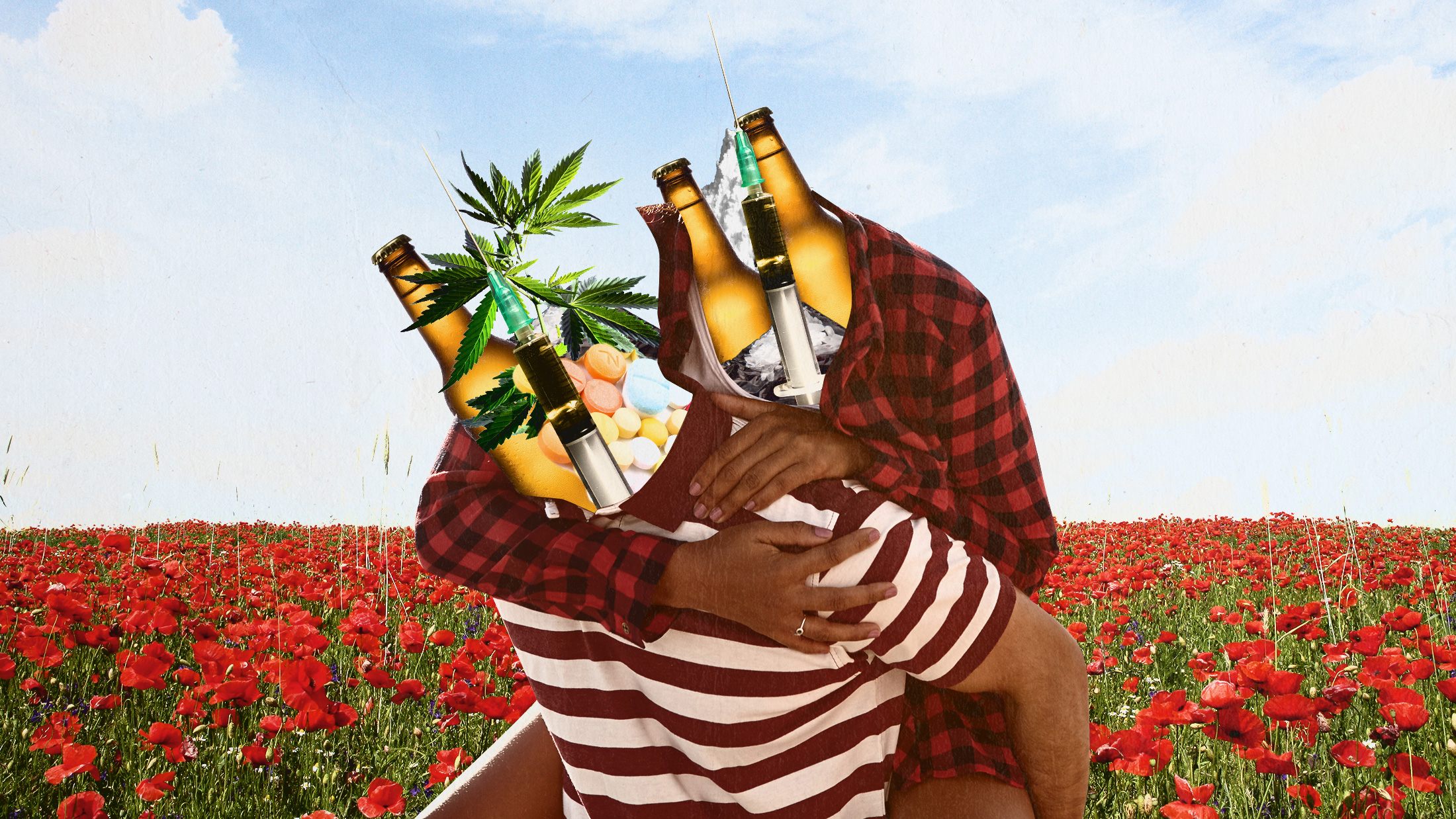Could your pessimism be the key to a better life? How the hell do you make a new friend as a full-grown adult? Read the rest of the VICE Guide to Self Improvement here
When Rami Matan Even-Esh was in prison, he was sent to an in-house detox unit for people coming off large volumes of heroin and alcohol. There, he and a “cute girl” in a similar situation happened to lock eyes. Unable to talk face-to-face thanks to the 24-hour lockdown policy, the pair instead slid notes under each other’s cell doors.
“I put my extra strength Tylenol into my notes to make her dig me a bit more,” says Rami, a rapper who goes by the stage name Kosha Dillz. “We stayed in touch during her [jail] sentence and we would send each other letters. She would draw on her ones to me and I would scent mine with peach lotion I bought on commissary.”
Videos by VICE
“Our relationship was born out of desperation and loneliness,” Rami adds, noting that ultimately, and purely for logistical reasons, the flirtation remained just that. “But it definitely helped me get through my time in there.”
The lure of rehab romance is well known to both recovering addicts and their counsellors. The early isolation and misery of recovery can make the desire to attach potent to the point it becomes all-consuming, which is precisely why facilities and industry body guidelines take such a hard line against it.
“We’ve had to ask people to leave treatment because they had entered into an intimate relationship,” says David Godden, clinical director at Byron Private Holistic Treatment Centre. The meeting of “codependent minds” is a forceful pull that invariably derails the recovery process, he explains. “If they’re not prepared to look at it and disengage, then they have to be discharged from our facility.”

Falling in love in recovery is akin to “trying to build a house during a hurricane” says David Miller, a psychotherapist with experience working in residential and outpatient facilities. Addicts use substances to alter how they feel, he explains, which can make infatuation or sex their replacement drug of choice. This takes the focus off recovery by allowing patients to avoid introspection.
“The primary task of early recovery is to get to know yourself,” Miller says. “The majority of times I’ve seen people start new relationships in rehab—or in the first year in recovery—they have stopped working on themselves [and] focused on their new partner. And very often, either both relapsed or they created more wreckage from another failed relationship.”
Former alcoholic Melissa*, 29, was three days into a 10-day withdrawal program when she met Indigo*. She felt empty and depressed, and suddenly there was a “beautiful man” sitting across from her at lunchtime who obviously shared her attraction. “My mind just latched onto him,” she says. “I think I would have been drawn to him anyway, but being in that world definitely made the things so, so intense.”
Indigo had a longterm partner and a child, but they embarked on a fraught five-day affair anyway—neither able to concentrate on anything else. They established “safe” spots to meet on the centre’s grounds, and that took priority over everything. Although Indigo went back home to his wife, he and Melissa continued to see each other secretly for a month. “But I think we both knew pretty quickly things [felt] different,” she says.
“Anything after that intensity would feel a bit… flat. It wouldn’t matter who you were, or who they were, or how good the sex initially was.”
“When it was all over, I felt really guilty that I’d wasted this opportunity to figure out why I abused alcohol,” she adds. “But, at the same time, I really thought the relationship would go somewhere. I convinced myself I needed him.” Melissa addressed her guilt later on by going through another program, where she “worked really fucking hard” and graduated with flying colours.

Recovery forums are filled with stories of failed rehab romances, and those looking for affirmation that their love story might defy the odds. “Everything is hunky dory in a controlled atmosphere,” writes “Wren” on the forum soberrecovery.com.
“Long looks at meal time, passed notes, makes my heart just pitter patter. Then we got out. Welcome [to the] real world. Last I saw of my life’s love he was under a bridge drinking wine. By then I had his name tattooed on my forearm. I can laugh now, but 20 odd years ago it was not funny. He eventually died of alcoholism.”
There’s a high tendency for romantic relationships to fall apart in general, says Miller, noting that more than half of all marriages end in divorce. So it stands to reason those started against a backdrop of turmoil tend to fare even worse. “Addicts and alcoholics are particularly good at deceiving people to be able to keep using and drinking. They’re likely to carry that deception over into new romantic relationships.”
Strong longterm relationships generally require two to five years of dating, he says, “to get to know the other person as they genuinely are. There’s little likelihood of starting a successful long-term relationship while you’re riding the roller coaster of mood swings that happen when you first give up substances.”
There are happy stories, though. “Most rehab romances are a bust but I met my current fiancée in treatment,” says 23-year-old Kiersten Neely, who went to rehab for meth and heroin addiction when she was 21. “We had both been around 90 days clean [when we met]. We completed four months in the same treatment program followed by six months of aftercare, and remained best friends until we both graduated. “We didn’t use our feelings for each other as a distraction like most rehab lovers do.”
The pair have been clean for 17 months now. In a few weeks they will “walk the stage” together, signifying their recovery. “Not all rehab romances are destined to fail, as long as you don’t put the relationship before your recovery,” Kiersten says. “We were serious about getting clean.”
More
From VICE
-

Rick Friedman/Corbis via Getty Images -

Margaret Norton/NBCU Photo Bank/NBCUniversal via Getty Images -

WWE via Getty Images -

Lexie Moreland/WWD via Getty Images
